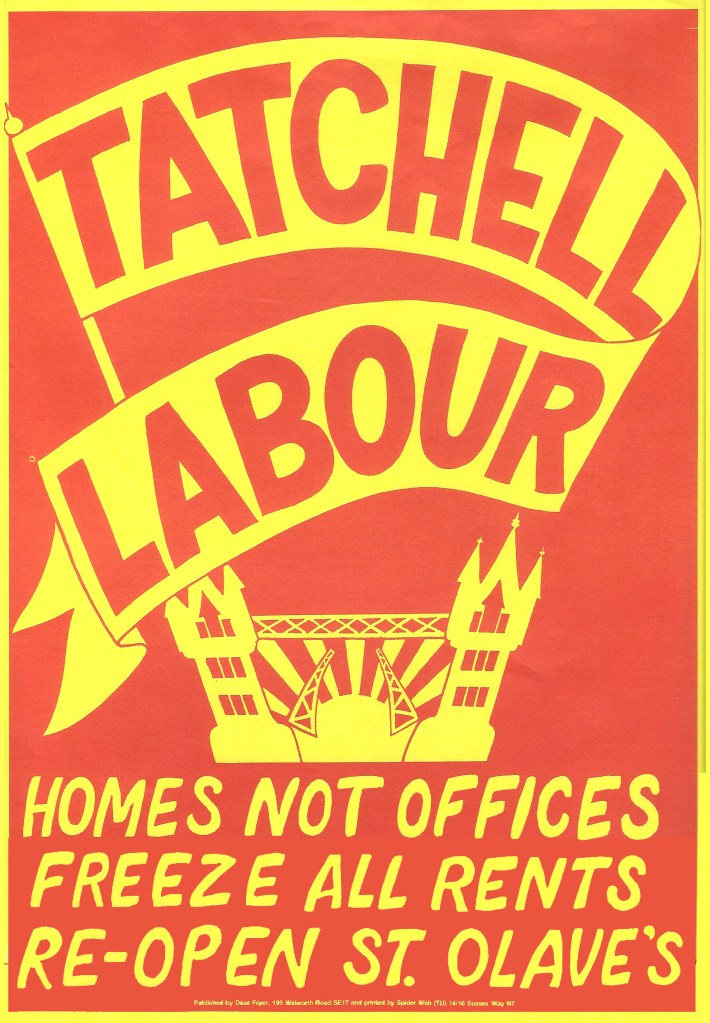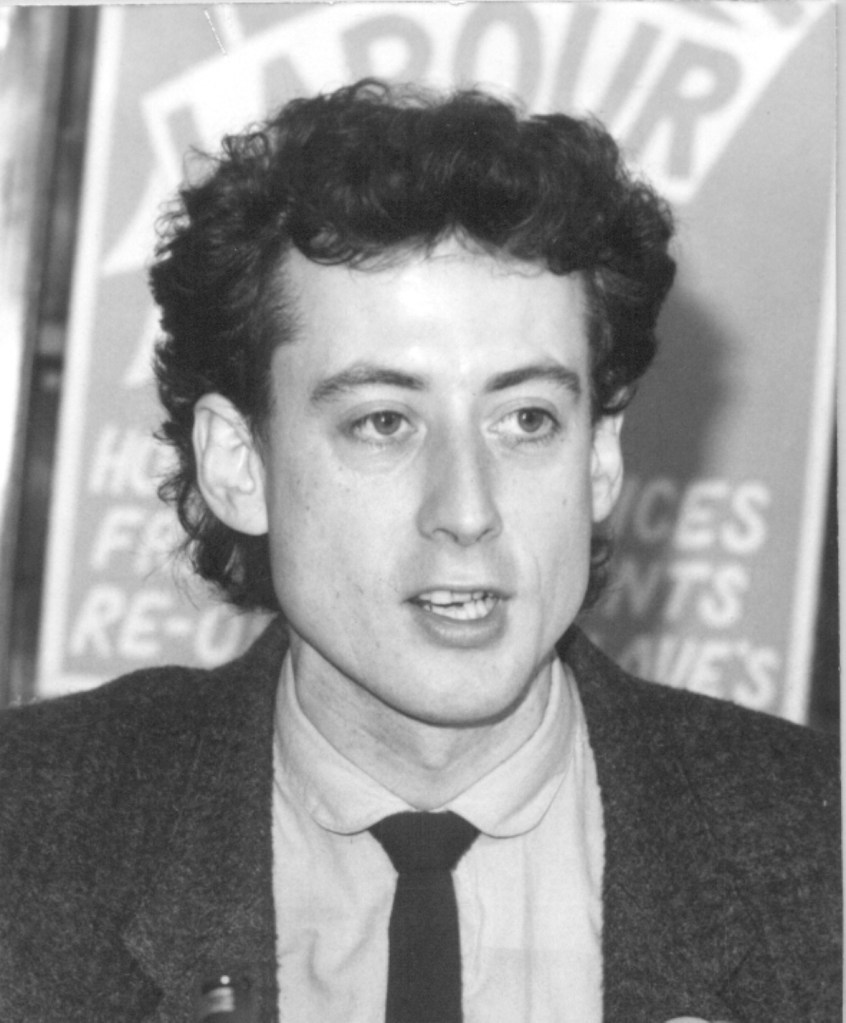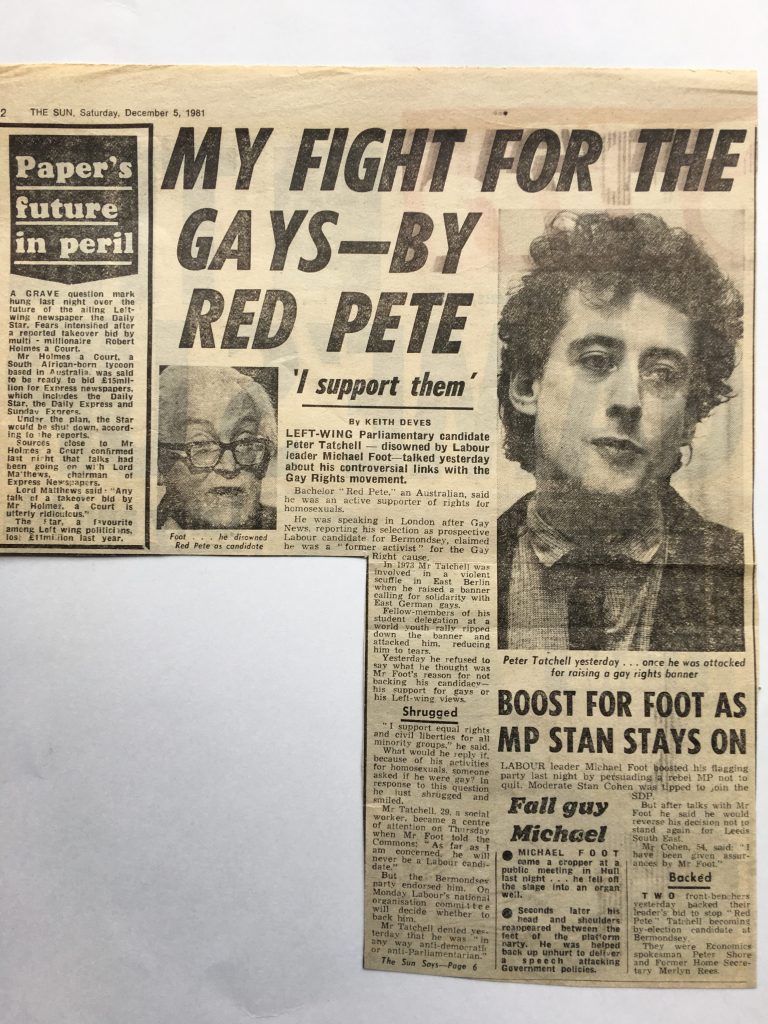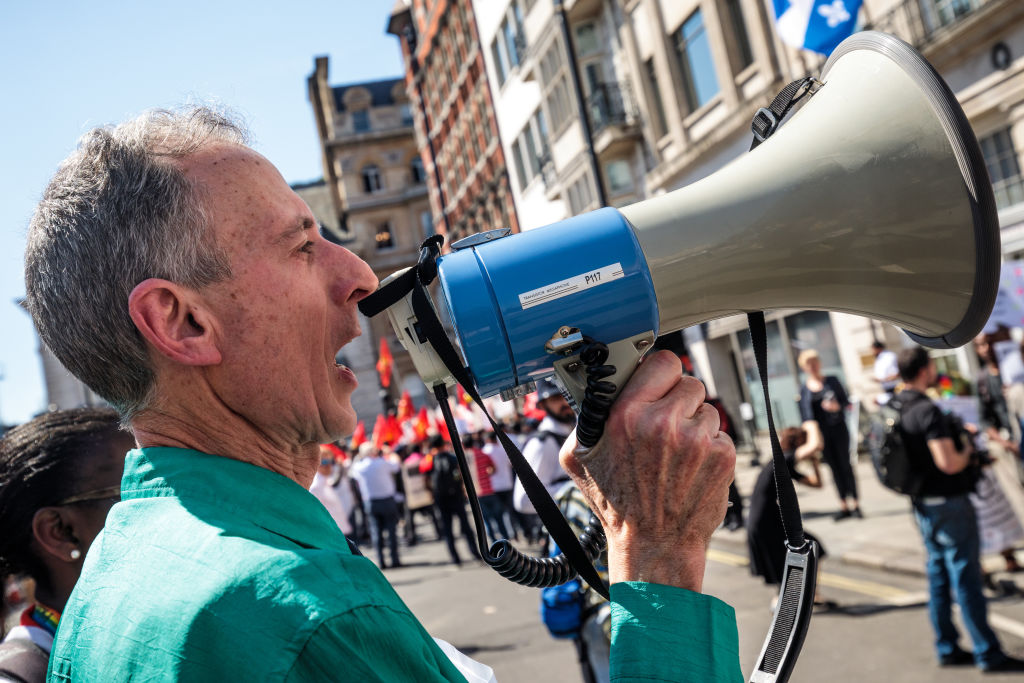Peter Tatchell on his brutal 1983 bid to become first out gay man elected to parliament

Peter Tatchell in a photograph promoting his candidacy in the 1983 Bermondsey by-election. (Supplied/Peter Tatchell)
Being a political candidate is rarely easy, but nothing could have prepared Peter Tatchell for just how badly his 1983 run in the Bermondsey by-election would pan out.
In 1980s Britain, being openly gay was difficult – but in politics, it was an impossibility. At the time, there had been just one out gay MP in history: Maureen Colquhoun, who was outed in 1975 and subsequently saw off a deselection attempt (though she lost her seat in the 1979 election).
Peter Tatchell was already a noted gay rights activist when he threw his hat into the ring to become the next Labour MP for Bermondsey in southeast London in a 1983 by-election.
Once the press found out about his activism, all hell broke loose. Tatchell was subjected to a string of physical attacks and homophobic harassment. In February 1983, the people of Bermondsey voted in their droves for Tatchell’s opponent, the Liberal Democrat Simon Hughes.
It’s been 40 years since that stinging election campaign, but Tatchell remembers with clarity just how terrifying the homophobia he faced was.

“It was a non-stop deluge of lies, smears and prejudice,” Tatchell tells PinkNews.
His political career began when he moved to the Rockingham Estate in the Bermondsey constituency in 1978. Right from the start, he was “stunned” by the scale of poverty and deprivation in the area.
“It was almost Dickensian in parts of the constituency,” he recalls. “About 95 per cent of the housing was owned and run by Southwark Council but the properties were often very poorly maintained and tenants had to wait weeks or months to get repairs.
“I was extremely angry that property developers were seeking to squeeze out the local working class community in order to build corporate office blocks and luxury flats for the very rich. That seemed so unjust and unfair.”
Tatchell was also incensed by the Thatcher government of the day, which was “decimating” communities. He decided to take action, and his name was put forward when sitting MP Bob Mellish resigned.

The homophobic campaign against him kicked off almost immediately.
“As soon as I was selected in November 1981 the tabloid press turned on me, denouncing me for being gay and supporting LGBT+ rights. They said that meant I was unfit to be an MP.
“Right from the get go I was hounded by paparazzi and denounced in nearly all the mass-circulation newspapers.”
Labour Party asked Peter Tatchell if he ‘messed with little boys’
Tatchell wasn’t exactly embraced in the Labour Party either. Shortly after his selection, he was summoned to the party’s headquarters to receive a briefing.
“The first question I got asked was, ‘Is there anything in your past that would be embarrassing if it got out to the public? Do you mess with little boys?’”
He’s almost certain he was asked that question because he was openly gay and had publicly fought for gay rights.

“I don’t know for certain but that’s what I suspect. A lot of people in Labour’s hierarchy had quite homophobic views.”
As the campaign took off, the hate Tatchell faced only escalated. He was physically assaulted, homophobic graffiti went up in the area, and he received hate mail.
On the last weekend of the campaign, a leaflet was circulated in the constituency asking the question “Which queen will you vote for?” It showed Tatchell looking effeminate beside a picture of Queen Elizabeth II.
In a final dig, the leaflet also publicised Tatchell’s home address and phone number.
“It was psychologically, emotionally and physically very difficult to cope with. To have over 100 violent assaults within a 16-month period was almost like living through a civil war. Every time I stepped outside of my flat I was terrified of the next punch, kick, bottle or knife,” he says.
Tatchell holds the media responsible for the majority of the attacks he endured – but they weren’t alone. His political opponents also launched “vicious” smears against him.

Tatchell explains: “The former MP Bob Mellish openly colluded with his supporters who sang a song, ‘Tatchell is an Aussie, Tatchell is a poof, let’s go down the Rockingham and throw him off the roof.’”
The police refused to give him any kind of protection – instead, Tatchell was forced to fend for himself.
“I boarded up my flat, sealed the letterbox, installed a rope ladder so I could escape through my back bedroom window and abseil down the side of my block of flats. At night I slept with a fire extinguisher next to my bed.”
In the end, following a brutal campaign, Tatchell won just 7,698 votes compared to Hughes’ 17,017. It remains the largest by-election swing in British history. Chris Smith went on to become the first gay MP to come out of their own volition in 1984.
It was a painful, demoralising experience for Tatchell, but four decades on, he’s also keen to look on the bright side. His candidacy put LGBTQ+ rights on the political agenda for the first time, and it helped drive some incremental change in the media.

The Bermondsey by-election was vicious to its core, but Tatchell believes it paved the way for future gay politicians to run without facing quite the same amount of homophobia.
“One of the positive outcomes of the by-election was that after I was defeated large sections of the public and press felt extremely guilty and embarrassed about the way I’d been treated,” Tatchell says.
“That meant when subsequent gay candidates or MPs came out, they didn’t dare abuse and demonise them in the way that happened to me.
“My baptism of fire made it easier for LGBT+ candidates who followed.”
Amended to clarify that Maureen Colquhoun was the UK’s first out gay MP.

